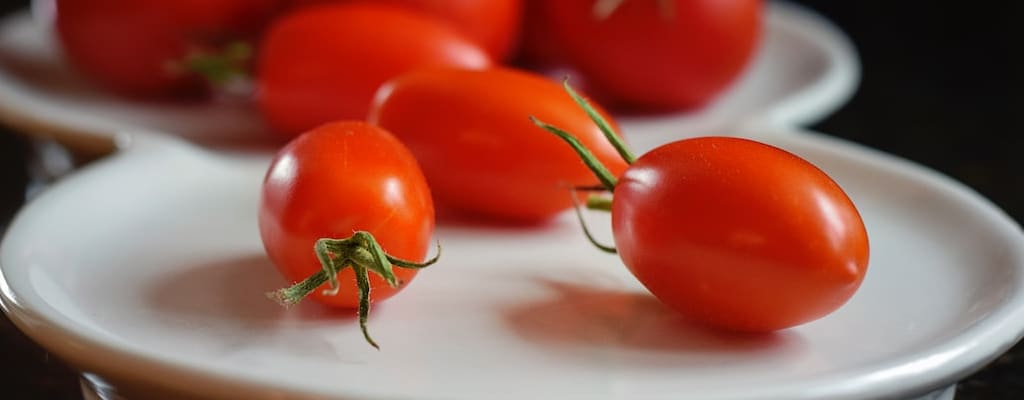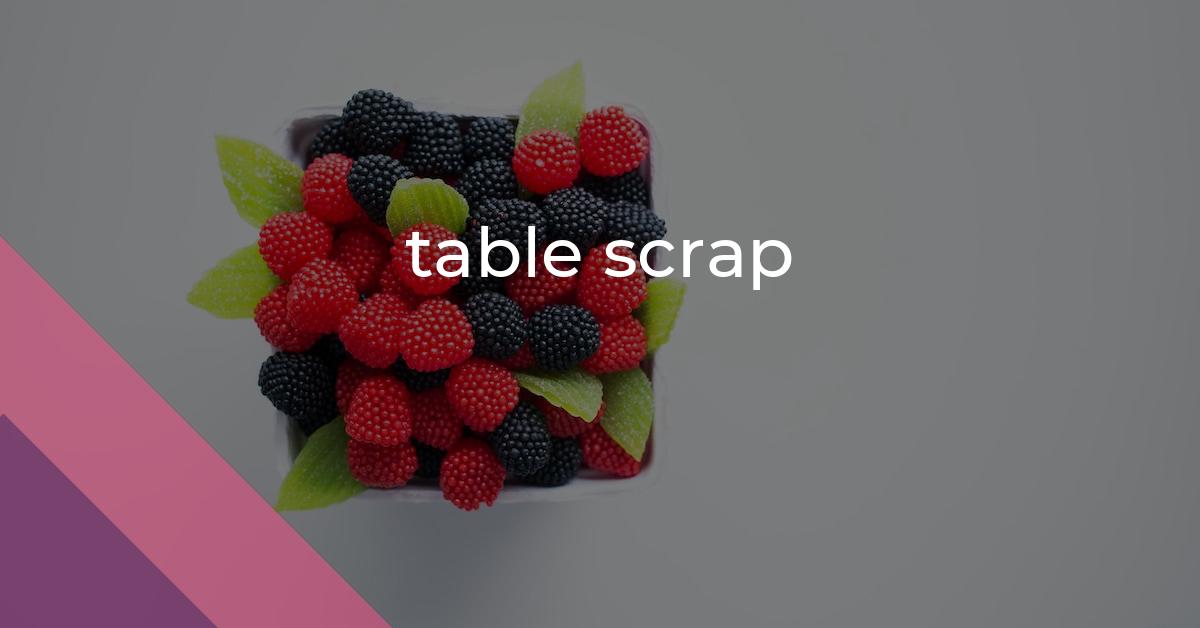table scrap: Idiom Meaning and Origin
What does ‘table scrap’ mean?
The idiom "table scrap" refers to a small amount or portion of food left over after a meal, typically given to a pet or thrown away. It symbolizes something of low value or significance, often used figuratively to describe meager or insufficient offerings.

Idiom Explorer
The idiom "throw away" means to get rid of or discard something without considering its value or potential usefulness.
The idiom "take out the trash" means to remove or eliminate something or someone undesirable or unnecessary.
The idiom "table talk" refers to casual conversation that happens during a meal, often discussing lighthearted or non-serious topics. It can also imply gossip or discussions about controversial subjects.
An idiom widely used to refer to something insignificant or unimportant. It implies that the mentioned object or amount is of little value or significance.
The idiom "scratch together" means to gather or collect something, often money or resources, in a hasty or improvised manner. It implies that the process may be difficult or challenging, as if one is scraping or scrambling to obtain what is needed.
The idiom "scrape through" means to just barely succeed or pass, often with difficulty or by the smallest margin.
The idiom "scrape the bottom of the barrel" means to use or accept the least desirable or lowest quality option or resource because there are no better alternatives available.
The idiom "put food on the table" means to provide the necessary income or means to support oneself and one's family.
The idiom "pizza table" refers to the small, circular plastic table often found in the center of a pizza box to prevent the top of the box from collapsing onto the pizza. It is used metaphorically to describe an unnecessary or excessive item or feature that serves no practical purpose.
Hidden Revelation
Table scrap is an idiom with origins in the early 19th century. In literal terms, it refers to leftover food scraps given to animals after a meal. In its figurative sense, table scrap is used to describe something of low value or importance, often seen as a remnant or afterthought.
This idiom is commonly used in the United States, in informal contexts, to convey the idea of receiving something less desirable or of inferior quality. It is often associated with receiving less attention, resources, or recognition than others, highlighting a sense of being overlooked or undervalued.
Table scrap can also refer to a small or inadequate portion of something, emphasizing the notion of receiving a meagre or insufficient share, leaving one feeling unsatisfied or deprived.
Furthermore, the idiom can be used metaphorically to describe a situation or position that is marginalized or unimportant. It suggests being relegated to a secondary or insignificant role, similar to being given the scraps from a feast while others enjoy the main course.
The idiom table scrap is predominantly used in a negative or dismissive manner, highlighting a sense of disappointment, disadvantage, or neglect. By evoking the imagery of leftover food, the idiom effectively captures the notion of being treated as less worthy or deserving, contributing to its widespread use and understanding.
Table scrap is related to several idioms that further expand on its meaning. One such idiom is "eat and leave no crumbs." This phrase encourages individuals to consume their food neatly and not leave behind any remnants. It symbolizes thoroughness and attentiveness, in contrast to the idea of receiving table scrap which implies a lack of attention or care.
Another related idiom is "pizza table." This phrase is often used to describe the small, unused crust of a pizza that is left over after the main part of the pizza has been eaten. It can be seen as a metaphorical representation of receiving only a fraction or an inadequate portion of something.
The idiom "throw away" is also closely related to table scrap. This phrase implies discarding or getting rid of something without giving it much thought or value. It aligns with the notion of table scrap as something of low importance or worth, easily disregarded.
An additional related idiom is "cake crumbs." This phrase refers to the small pieces or remnants of a cake that are left behind after it has been consumed. It mirrors the concept of table scrap in highlighting the idea of receiving only a small, less significant portion of something.
Table scrap is an idiom that conveys the idea of receiving something of low value or importance, being overlooked or undervalued, receiving a small or inadequate portion, or occupying a marginalized position. Its origins in literal food scraps illustrate the underlying metaphorical meaning, which resonates with individuals who have experienced such circumstances. While the idiom encapsulates these specific connotations, its broader implications prompt contemplation of situations where one may feel undervalued or disadvantaged, thereby leaving room for further introspection and exploration.
Example usage
Examples of how the idiom "table scrap" can be used in a sentence:
- She fed her dog table scraps after dinner.
- The children eagerly collected the table scraps after the meal.
- The waiter offered to wrap up the table scraps for the customer to take home.
The idiom "table scrap" refers to small pieces of leftover food that are given to pets or usually discarded after a meal. In the first example, a person is giving their dog small pieces of food left over from the dinner table. The second example shows children collecting the small amounts of leftover food after a meal. In the final example, a waiter offers to pack the remaining bits of food for a customer to take home. Overall, the idiom "table scrap" depicts the surplus or scraps of food usually found after a meal and how they are utilized or discarded.
More "Food" idioms



